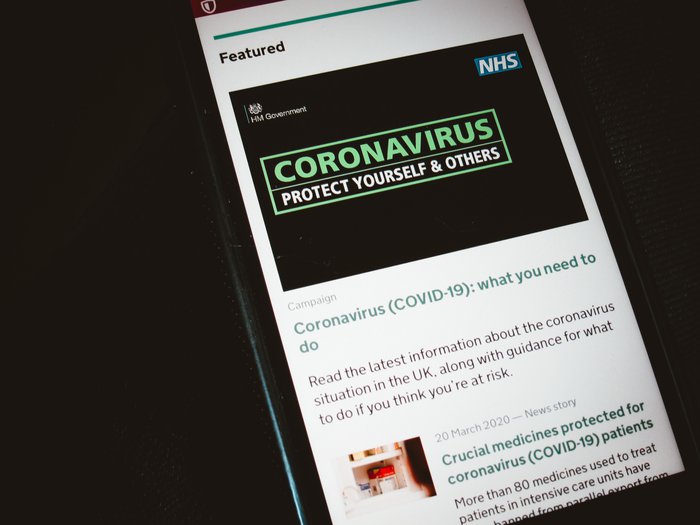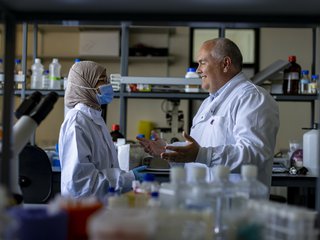Does having blood cancer put you at greater risk from the coronavirus?
United Kingdom
This week the Lancet Oncology published the largest study into coronavirus and cancer. It looked at whether some types of cancer put people at higher risk from the coronavirus than others.

In March, the UK Government and the governments in Scotland, Wales and Northern Ireland told around 2 million people in the UK with certain health conditions that they are “extremely clinically vulnerable” to the coronavirus and so needed to be particularly careful to avoid it.
At first this meant not leaving your home at all (called shielding). But this guidance has become less strict as the virus has become less prevalent and so the chances of coming into contact with it have reduced.
Of these 2 million “extremely vulnerable” people, about one in 10 (just over 200,000) have blood cancer. But while Governmental bodies have issued one set of guidance that covers everyone who is extremely vulnerable, over the last few months there has been research published suggesting people with blood cancer are at particularly high risk from the coronavirus.
This week, a new study has been published in Lancet Oncology that confirms this.
The study is the largest in the world so far published on coronavirus and cancer, and has looked at what has happened to people with cancer in the UK who have gone to hospital after being diagnosed with the coronavirus. For each type of cancer, the authors wanted to see what proportion of patients had particularly severe infections or died. By doing this, they hoped to see whether some types of cancer put people at higher risk from the coronavirus than others.
Did people with blood cancer have worse outcomes?
Of the 224 people with blood cancer included in the study, about a third of them (36%) died. For comparison, when looking at all other cancer types (not including blood cancer), the proportion that died was 29%. And even if they didn’t die, people with blood cancer were more likely to need more intensive treatment.
Once you adjust the figures to account for age and gender (we know that being older and being male both put you at increased risk from the coronavirus), people with blood cancer were more likely to die than those with other types of cancer. The risk for leukaemia is more than double that for the cancer average, and also significantly higher for lymphoma and myeloma. People with other types of blood cancer had a slightly reduced risk of dying but the number of these people included in the study was low.
This only tells part of the story
It would be easy to get very worried by the proportion of people with blood cancer in this study that died. So there are a few things to say to put this research in context.

Sign up to our enewsletter to stay updated on our progress
Join our mailing list to keep updated about the latest news, research, and the ways you can help – including campaigns and events that you might be interested in.
It’s important to remember that this study only looked at people with cancer who went to hospital after getting the coronavirus. It’s very likely that some people with blood cancer got the coronavirus and only had mild symptoms or no symptoms at all, and so didn’t go to hospital. These people aren’t included in these results, and so someone with blood cancer’s risk of dying if they get the coronavirus is likely to be significantly less than 36%. But we just don’t know how many people with blood cancer get mild symptoms or no symptoms at all and this study can’t tell us that.
Second, better treatments and getting to hospital early should mean fewer people with blood cancer will die. This study was conducted during the first peak of COVID-19 infection in the UK. Already doctors know much more about how to treat people effectively when they have to go to hospital, which should improve outcomes. And it is important that people with blood cancer know to speak to their blood cancer specialist team straight away if they have symptoms or receive a positive test result, so that if your specialist thinks you need urgent treatment they can help you to get it.
Also, these figures are just averages. Leukaemia, lymphoma and other types of blood cancer are broad categories containing different diseases, some of which doctors suspect will have very different COVID-19 risks. People’s individual levels of risk will also depend on their stage of treatment, and whether they have any other health problems.
Many people with blood cancer will have already received advice about their personal COVID-19 risk from their specialist that is tailored to them. Many will have been told their risk is low. It’s important to understand that this paper looks at risk in broad categories of blood cancer and is unlikely to change the advice you have already received from your haematologist – but as always, if you are unsure then it is important to talk to your specialist team.
What will the researchers look at next?
We’ve had a number of conversations with the team who published this research and they will be going on to study outcomes for people with different types of blood cancer in much more detail. Having this evidence is really important, as although specialists can give reasonable advice to their patients based on their clinical judgement, COVID-19 is new, and we just don’t know exactly how it is going to affect risk in different cancer types.
It’s important to put more evidence in the hands of doctors and of people with blood cancer so they can make informed decisions about how often they go outside; see their friends and families; or go back to work. And we know it’s important that Governments hear this message loud and clear and do more to support and protect the people who need it most.
We’re looking at what we can do as a charity to help find these missing pieces of the jigsaw, whether it’s persuading others to fund research into it or funding it ourselves. We’ll update you on this as we have more news.
In the meantime, we understand how frustrating and anxiety-inducing it can be to not have the full picture on how your blood cancer affects your risk from the coronavirus.
So it’s important for people with blood cancer to talk to their healthcare team about their individual circumstances. But it’s also important that they continue to access cancer treatment when they need it, as the NHS has done a lot of work to make hospitals safe for people with cancer.
If reading this has affected you
We know this is a very difficult time for people with blood cancer. Our community has already had significant mental health challenges as a result of the pandemic, and we understand that a study like this can add to the anxiety.
If you want to talk to someone to get more information about this or just want someone to talk to, we’re here for you. You can call our support line on 0808 2080 888 or email [email protected]
We will continue to give you updates when new research is published, and you can sign up to our e-newsletter below to get them sent directly to your inbox.

Want to read more stories like this?
Join our mailing list to get stories like this delivered directly to your inbox every month.
